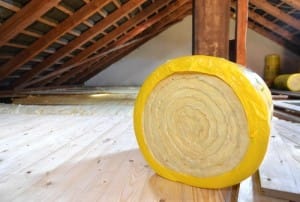How to Keep Your Upstairs Cool Without Constant Changing of Thermostat Settings
Among the methods to keep your upstairs cool, three pointers in particular may work to resolve the issue:
Seal Leaks
Windows in the upstairs area should be reinforced with new caulking or replaced altogether to help keep air leaks from occurring. Heat gain in the summer can occur through convection and air leaks. This can end up costing a lot of money on energy bills as the air conditioner must work much harder to compensate. Having a “blower door test” conducted by a certified professional will help locate leaks throughout your home, and thermographic scanning equipment can identify where insulation is lacking. Purchasing door draft stoppers is another way to keep your home as airtight as possible.
Add Attic Insulation
Heat gain in the summer can be a big problem for homes that have inadequate or substandard attic insulation. The upstairs area will be especially susceptible to becoming overheated if there’s not enough insulation to stop the transfer of heat between the attic and living areas. If your attic has old, loose-fill insulation, or not enough, think about contacting a professional to resolve the issue.
Clean or Replace the Air Filter
Having a clean air filter will help cool air reach the upstairs with less effort. A badly clogged filter is a costly obstruction that can stifle proper airflow throughout the home. If you decide to replace the filter, examine the filter’s MERV rating for a better idea on its ability to capture harmful allergens or particulates. Most homes benefit the most from a mid-range MERV filter (7-12) that does a good job of cleaning indoor air but won’t impede airflow.
If none of these steps work, consider installing a zoning system that will give you independent control of the temperatures upstairs.
If it’s been a struggle to keep your upstairs cool, these tips may prove useful in resolving the problem and improving the comfort of your family. Contact Tri-County Aire for more information on improving your home’s comfort without having to constantly fiddle with the thermostat.
Tri-County Aire, Inc.
29962 Killpeck Creek Court
Charlotte Hall, MD 20622
Phone:
800.890.5123
Office Hours
Mon - Fri: 7:30 a.m. - 4:00 p.m.
Maryland License #6103
All Rights Reserved | Tri-County Aire, Inc.





